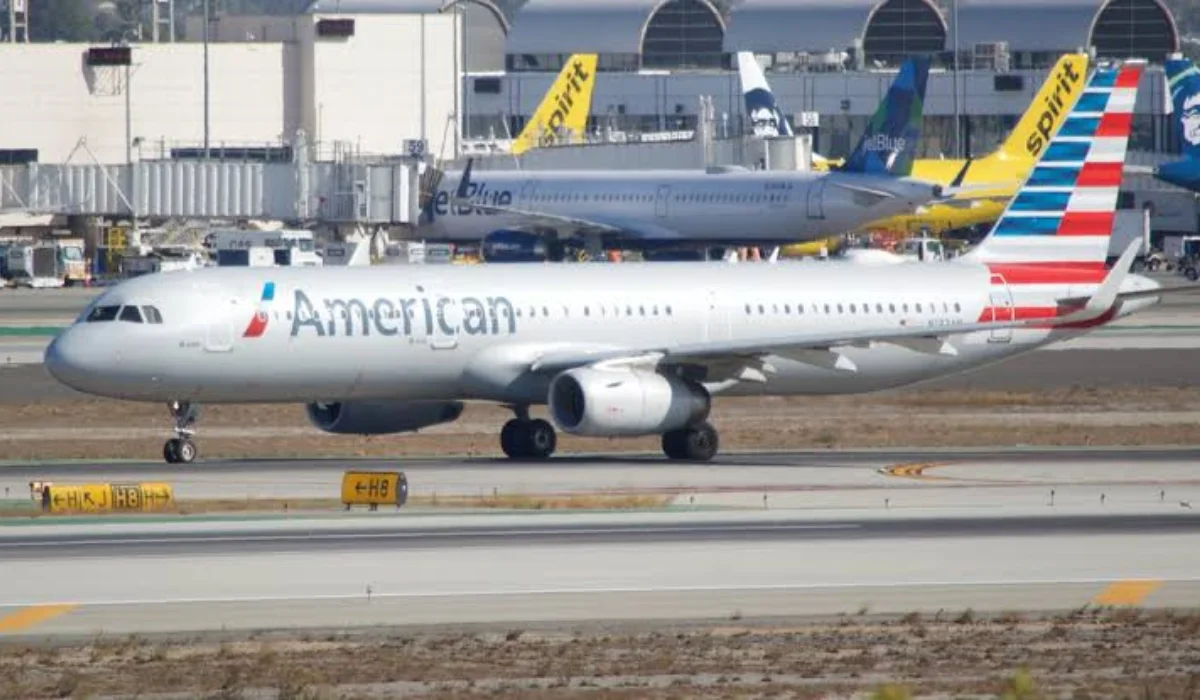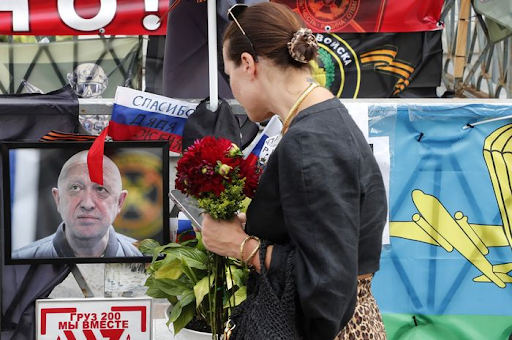
In a somber event that marked the end of a controversial chapter, Yevgeny Prigozhin, the once-powerful Wagner chief, has been laid to rest in a private funeral held in the heart of St. Petersburg. The ceremony took place in what was described as a “closed format,” preserving the intimacy of the occasion, while a heartfelt invitation was extended to those who wished to bid their final farewells at the Porokhovskoye cemetery.
The news of Prigozhin’s death reverberated across headlines after Russian authorities confirmed his demise, relying on genetic analysis of the bodies recovered from a plane crash near Moscow on August 23. The circumstances surrounding his passing have raised eyebrows and prompted speculation, casting shadows on the official account of the incident.
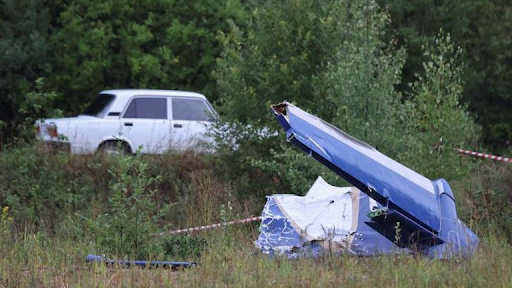
Prigozhin’s legacy is a complex mosaic of loyalty, ambition, and controversy. Once a loyalist of Vladimir Putin, he found himself thrust into the center of political and military intrigues that would ultimately redefine his trajectory. The tumultuous events leading up to his death include an ill-fated armed mutiny in June, which he spearheaded, attempting to seize power in Russia. This act of defiance marked a stark departure from his former alliance with Putin, setting in motion a series of events that would culminate in his untimely demise.
The crash that claimed Prigozhin’s life also took the lives of ten others, including his close associate Dmitry Utkin, adding to the gravity of the tragedy. The wreckage was discovered in the Tver region, northwest of Moscow, further shrouding the incident in mystery and speculation. Despite official denials, whispers of conspiracy theories have circulated, alleging potential involvement of Russian security forces.
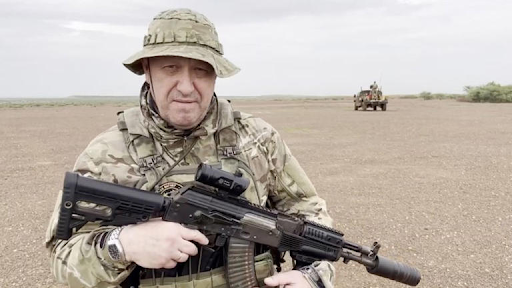
Interestingly, the Kremlin has staunchly denied any connection to the crash, dismissing the speculation that they might have played a role. Nevertheless, Prigozhin’s reputation as a “dead man walking” had already taken root in the minds of many Russia watchers, both within the country and beyond its borders. This perception was fueled by the aborted mutiny he led earlier in the summer, which seemingly set the stage for the events that followed.
As news of Prigozhin’s private funeral emerged, questions lingered about the circumstances of his death and the potential implications for Russian politics. The funeral was announced by the Wagner press service via a concise statement on the Telegram platform, offering few additional details. Notably, Russian President Vladimir Putin, who once had close ties with Prigozhin, did not attend the ceremony, leaving many to ponder the dynamics of their strained relationship.
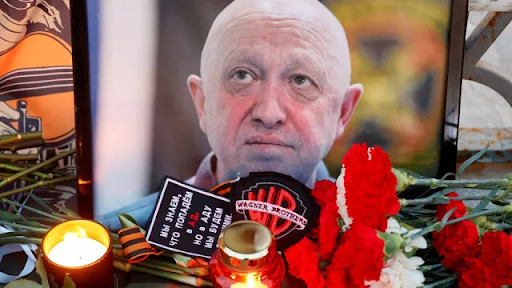
Prigozhin’s journey from being a Putin loyalist to leading a rebellion against top Russian military figures showcases the intricate interplay of power and politics in the country. His efforts to wrest control, symbolized by his attempt to capture Rostov-on-Don and march towards Moscow, were met with condemnation and described as an act of betrayal by Putin himself. While a deal was struck allowing Wagner fighters to join the Russian army or move to Belarus, Prigozhin’s fall from grace was undeniable.
The circumstances of Prigozhin’s death, coupled with the enigmatic plane crash, continue to be subjects of intense speculation. US officials have suggested that an explosion on the private jet might have led to the tragedy, while Russian authorities maintain that foul play is a baseless claim. As questions persist, Prigozhin’s legacy remains a testament to the intricate and often unpredictable nature of political power struggles.




